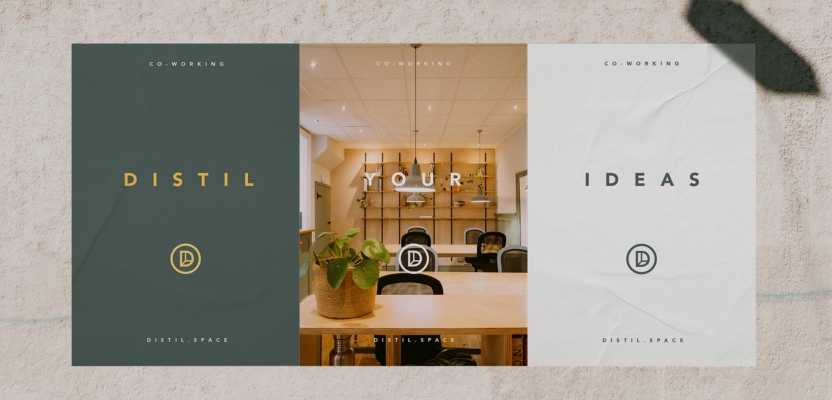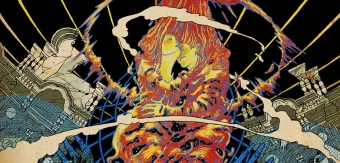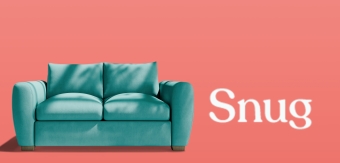Founded in 2011 by two childhood friends, ORCA isn't afraid to work with the brave, the challengers and the disruptors. With clients from a broad range of different fields, this passionate and driven branding agency believes in the power of creativity to make a difference and incite change in people's lives.
Disruption and change hardly come without a firm eye on the future, and ORCA's ambitions are as big as the team's own heart; they believe in collaboration and changing the world together, through a close-knit kind of teamwork which thrives on stimulating challenges.
In this Company Spotlight, we are learning more about ORCA straight from one of its co-founders, James Ewin, Founder and Managing Creative Director.
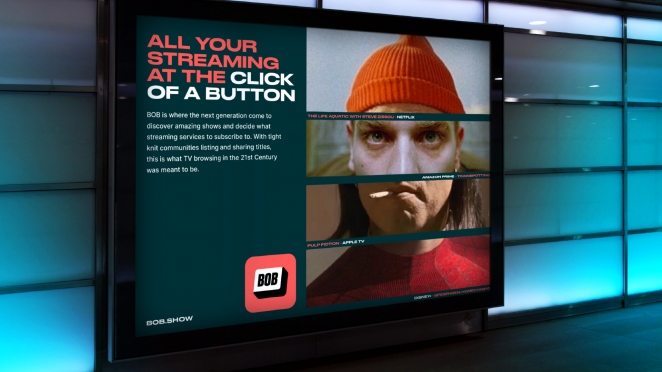
How was your company born and where are you based?
ORCA was founded in 2011 by myself and Joel Rosen; two childhood friends with a mutual love from brand and design. During our school years, Joel and I had frequently talked about starting our own business and had always shared the same passion for everything related to brand, design and typography. While I went to college and then university to study graphic design, Joel began his professional career in the industry. When I graduated from university in 2010, the economy was still on its knees in the wake of the last global recession.
Many agencies were really struggling, so there were very few job opportunities. As a result, Joel and I decided to get a small studio in Bristol and begin freelancing together. In those early days, we were just happy to be doing what we loved for a living and had no real intention of growing an agency, but as the months progressed and we began to get busier, we decided to combine our strengths and start a partnership business, ORCA. With a nominal investment of just £500 and a focus primarily on the food, drink and hospitality sectors, ORCA quickly gained a solid reputation within Bristol and the South West. We managed to bag some big clients in our first few years of business and steadily started to grow a team, so in 2014 we decided to make ORCA a Limited company and begin growing the agency as we know it today. Since then we’ve branched into other sectors such as events, culture, non-profit, tech, education and B2B services to name a few. These days we focus on challenger branding and working with ethical and sustainable organisations, creating disruptive experiences for bold brands and socially and environmentally conscious businesses.
What was the biggest challenge to the growth of your company?
Having not worked in an agency environment prior to starting ORCA, we’ve had to learn the hard way. Learn from our mistakes. Back in the early years there wasn’t a great deal of willingness from other agency owners to share or impart knowledge. These days there’s tonnes of content, courses, interviews, mentoring opportunities… the list goes on. But this wasn’t always the case. Learning how to run an agency, refine processes, manage people, win new business, manage finances etc. is hugely challenging without having prior experience. If I could do it again, I’d earn my stripes in an agency first before going at it alone. I’m convinced we could have grown much more quickly and with much less stress with some formative training. That said, the fresh faced naivety we started out with has stead us well in many situations, and having that ‘us against the world’ mentality made us super driven and super resilient.
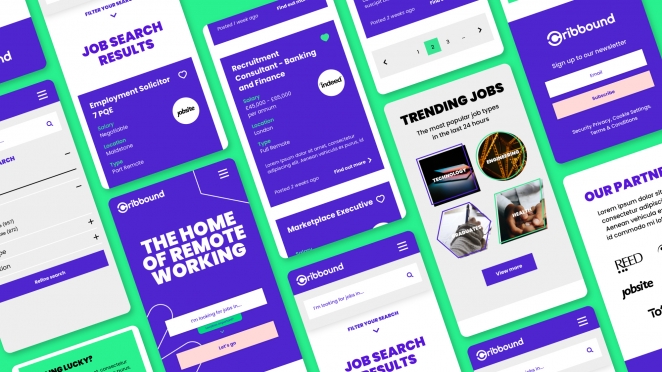
What’s the biggest opportunity for you and your company in the next year?
In January this year, Joel and I decided to go our separate ways with Joel going onto run our sister company, Briefbox, full time while I’ve taken the full reins and ownership of ORCA. There were various reasons for this decision, which you can read more about here > but ultimately, the decision has enabled me to make some significant changes to the company. We’ve already gone through a huge rebrand and repositioning exercise, refining our proposition towards disruptive, challenger brands, and it’s already paying dividends. The focus we now have as a team, and the belief in our brand and our values has really invigorated the team and I believe we’re now producing some of our best work to date. It’s been a strange transition, adapting to running a business alone after almost a decade of having a business partner, but the change has been empowering for everyone, and it couldn’t have come at a better time. Joel is now running Briefbox and building SAAS products and he’s happier than ever.
Can you explain your team’s creative process?
We start every project with a thorough research and discovery stage which usually includes a workshop where we delve deeper into the client’s proposition, aspirations and challenges as well as the market, competitor landscape and target audience. Once we’ve gathered all of the relevant strategic insight we start formulating a series of mood boards to begin developing the aesthetic direction the brand should take. We address areas such as colour, typography, patterns, illustrations, messaging, UI, photography and any other visual elements which make up a brand personality. We’ll gather inspiration from everywhere- existing brands, design publications, books, music, physical materials. Literally anywhere we can find inspiration. We then begin the brand exploration and ideation phases, coming up with a series of theme routes based on the preferred mood boards. This can range from explorations with pen and ink, paints, photography, digital renders, you name it. Whatever feels right for the project and the challenge at hand. These are presented in a variety of formats to help visualise the brand and aid decision making. We’ll then go through a series of feedback and iteration stages with the client until we’ve refined the visual identity to a stage that it’s ready to roll out across all the print and digital touchpoints.
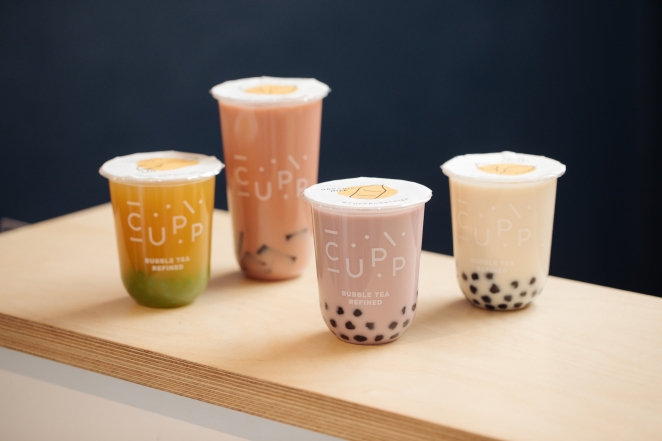
How does your team remain inspired and motivated?
Constant play. Constant research. Constant drive. And self initiated projects! As cliche as it sounds, we’re all students of our craft and are continually striving to learn and improve. As great as client work is, it can also be very frustratingly limiting, so each quarter we set ourselves a creative impact or awareness campaign challenge. This is to enable us to really stretch our creative muscle and work towards something that we truly believe in to incite change, make an impact or spread awareness of a certain issue. In the end of 2020 we created the ORCA Futures Campaign which focused on emerging trends in our specialist industries which are having a positive impact on the world. Last quarter we created the Digital Divide Campaign which highlighted the disparity and growing divide around access to digital devices and the internet, particularly during the COVID pandemic. This quarter, we’re creating an awareness campaign, promoting the importance of a balanced lifestyle - by highlighting the things which can have a negative impact on one’s mental health - with an emphasis on self choice and self expression. This is due to launch in Q4 2021.
How has COVID-19 affected your company?
Massively. We lost around 65% of business in the first 3 months of lockdown as much of our business was based in sectors which were hugely effected by the pandemic - hospitality, non-profit and events. This was what spearheaded our repositioning exercise. Being a challenger brand ourselves with a passion for sustainability we knew we wanted to focus more on brave, disruptive brands with a awareness of their environmental footprint, so we decided to knuckle down and focus our offering around challenger brands and ethical and sustainable businesses.
Which agencies do you gain inspiration from? Do you have any heroes in the industry?
Of course. My first introduction into graphic design was through the works of Stefan Sagmeister. I was obsessed with his process driven work in the early days. As an agency, we’ve always been a huge fan of bold and disruptive agencies such as DesignStudio, Ragged Edge, DixonBaxi, Snask, and &Walsh to name a few.
What is one tip that you would give to other agencies looking to grow?
Be patient, follow your gut instinct and don’t compare yourself to your peers. Be individualist and true to your values.
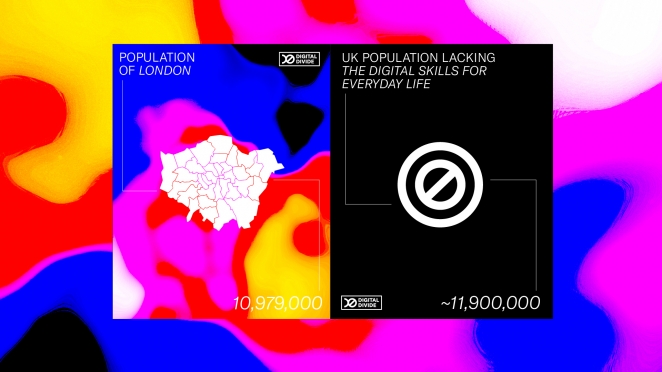
How do you go about finding new clients/business? (Pitching, work with retainers, etc.)
We generally try to avoid open tenders and only really pitch for work if we’ve been personally invited. Most of our business comes from referrals, from past and current clients. These relationships always start off on a good foot as they already know what we’re capable of and trust that we’re a reliable agency. We have targeted certain brands in the past that we admire and would love to work with, which has had mixed results.
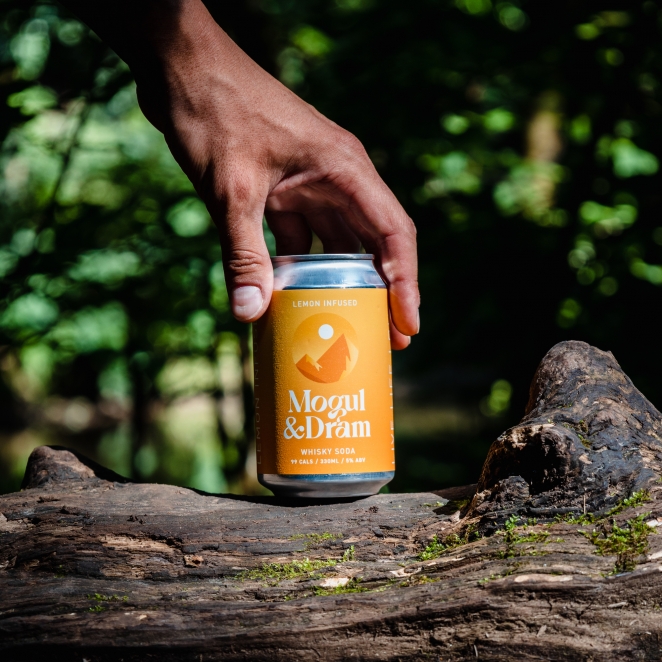
What’s your one big hope for the future of the industry?
I’d like to hope it keeps its integrity. There are so many new agencies popping up everyday, and as the industry gets more competitive and more saturated, clients are becoming more demanding and often looking to pay less. I’m a strong advocate of valuing one’s time and so I’m massively opposed to companies requesting free creative for pitches. If you’re going to ask an agency to pitch, offer them the time and the information they’ll need to prepare. If you’re going to ask an agency to offer a creative solution during a pitch and/or to submit some design ideas, then pay them fairly for it. You’ll receive a better, more accurate response and it’ll save you time and money in the long run. If you’re in the creative industry - agency, freelance or otherwise - then stick to your guns and refuse free pitches, it’s massively undermining the credibility prosperity of our industry.
Do you have any websites, books or resources that you would recommend?
Tonnes! We actually put together a great little resource over at our sister company, Briefbox, which lists some of our favourites. You can check it out here >

